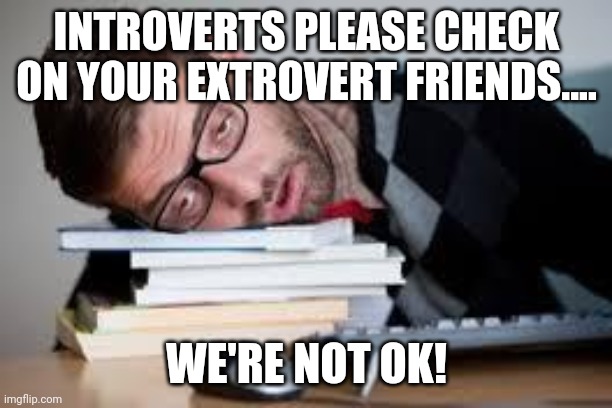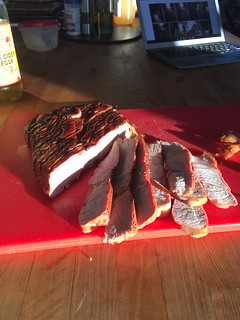
I made bread today. Not real bread, of course. Although who gets to decide what real bread is? Everything is a construct. Even toast. My bread will accept butter smeared on top just like 'normal' bread. It will not, however, send me into craving spirals like 'regular' bread does. The ingredients are also 'weird.' (So much judgement in our daily lives!) Things like whey protein isolate and inulin and psyllium. No wheat flour.
As a librarian, I notice things can be better understood often when we go up a cataloging level. Books are grouped by broad topic: history, then again by increasingly narrower topics. History - American slips to History - American - Mississippi. You get the idea. It is the physical manifestation of our human need to lump things together to ease cognitive response. If I know which box you belong in I can quickly decide if you are good or bad, safe or worrisome. The truth is our b
rains never really graduated from second grade.
While my bread does not have wheat flour, it does have flour - almond flour. It as leavening. It has fiber. Binder. The subcategories, where things get narrower, are where things get hairy and debate enters the scene. And with debate, values and controversy. The details matter, yes. But not so much as the reality: the kind of flour and the kind of binder are irrelevant, aren't they? At the end of the day we both have bread. We eat and are nourished, sustained.
This does not work for everything, of course. For example, words. Each one carries distinctly different weight and purpose. Animals; indisputably varied. However, context also matters. If the described situation is about communication, about how ideas are transmitted from one consciousness to another, words is one way. The precise words used may not matter. They are distinct from physical or psychic communication. Same with animals. A forest scene, for example, may contain plants and animals and that is all we need know. It is in fully completing the picture that we need the details. What color eyes? How long a tail? How much baking powder? How much sweetener? The full naming - the kingdom, genus, species - of a situation brings it to fruition as an idea or as food.
Poetry uses words to bring forth the intangible sensation of being that is indescribable by most of us, but in a poet's hands awareness is expanded: a greater truth experienced perhaps only in our subconscious is brought forward into the frame of recognition. And it is recognition we all seek. Technically, recognition means 'identification of someone or something or person from previous encounters or knowledge'or 'acknowledgment of something's existence, validity, or legality.' What it feels like in practice is a lot like what happens in a great a capella group: the song is good when one or two are singing, but when the harmonies join together it is next level. We access a greater whole. The same comes with the spark of recognition: a deep inner resonance that lights us up.
Recognition is the path to connection, what we mean when we say connect: I see you in me and me in you. We are connected. And this becomes possible when we go up a level: I do not like water skiing. I do not see me in you. You do not like horses. You do not see yourself in me. But we both enjoy fast-paced hobbies in the outdoors. I love reading. You hate it. You love movies. I never watch movies. We both love storytelling, escaping into other worlds.
Since our brains are second-graders (mine is a toddler, I'm quite sure) it is my job to guide it. When we look for recognition, sift up and down the categories until we find a point of connection, we tune into the harmony. I can't sing a note (true story: my mother wouldn't let me join in Christmas carols) but I train myself every day to search every interaction, every moment for a spark of recognition. Unless you are my husband. Since day one he has been a mystery. A compelling one, I might add.
We crave connection more than anything; it is the human condition. Unfortunately, the shadow side is that because we want it so very much, we protect ourselves from rejection and instead of training our brains to connect in every situation, we allow them free rein to zero in on the disconnect, the difference. Stalwart against the difference, righteous in our position, we maintain defenses and our second grade lizard brain thinks we win. But our deepest selves cry out from behind the ramparts, lonely and unrecognized as part of the greater story.
This, I believe, is the source of all addiction (food, alcohol, social media, drugs). We are numbing the pain of disconnection. The only balm is connection, the stroke of reminder we are part of the whole. For we are all, at the top of the umbrella classification, humans. Whether a tele-skiing vegan with a herd of Afghan dogs who dresses all in black or a wool spinning knitter who collects Polly Pocket dolls and eats hard boiled eggs for breakfast every day, each person has points of intersection, of connection. It is up to us to search for them and, further, to cultivate new ones.






























.JPG)





